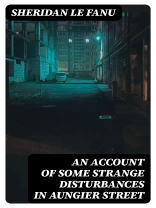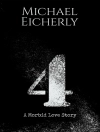In ‘An Account of Some Strange Disturbances in Aungier Street, ‘ Sheridan Le Fanu masterfully intertwines the realms of the supernatural and psychological horror. This novella, rooted in the Gothic tradition, explores bizarre phenomena that blur the line between reality and the spectral, highlighting Le Fanu’s keen understanding of Victorian anxieties surrounding the unknown. Through vivid descriptions and an unsettling narrative style, he evokes an atmosphere of dread and curiosity, compelling the reader to question the nature of perception and reality itself. Sheridan Le Fanu, a pivotal figure in the development of supernatural fiction, was influenced by the burgeoning exploration of human psyche and spirituality during the 19th century. His background as a journalist and his deep interest in ghost stories and folklore significantly shaped his literary works. This unique combination of personal fascination and literary acumen enabled him to craft narratives that not only entertain but also provoke profound contemplation about life after death and the mysteries of existence. I wholeheartedly recommend ‘An Account of Some Strange Disturbances in Aungier Street’ to readers who appreciate nuanced storytelling that deftly balances horror with introspective themes. Le Fanu’s compelling narrative invites readers to explore the shadows of their own psyche while delving into the eerie unknown, making this novella a must-read for fans of Gothic literature.
Circa l’autore
Sheridan Le Fanu (1814-1873) was an Irish writer, celebrated for his contributions to the Gothic horror genre and Victorian ghost stories. Born in Dublin, Joseph Thomas Sheridan Le Fanu hailed from a literary family and pursued law at Trinity College. However, he soon abandoned legal practice to engage in journalism and writing. His mastery of suspense and the supernatural is evident in his eerie narratives, with ‘An Account of Some Strange Disturbances in Aungier Street’ standing as a testament to his skillful use of haunted settings and psychological terror. Le Fanu’s work often reflects the nuanced interaction between the anxieties of the living and the unrest of the dead. His seminal work, ‘Carmilla’ (1872), is foundational in vampire fiction, predating Stoker’s Dracula by twenty-six years, and influencing generations of horror literature. Le Fanu’s literary style, characterized by its mood and setting, established him as a leading figure of 19th-century ghost stories. In addition to short stories, Le Fanu also authored several novels, including ‘Uncle Silas’ (1864) and ‘The House by the Churchyard’ (1863), which further solidify his legacy as a pioneer of the psychological thriller and the ghost story genre. Posthumously, his influence endures in the works of contemporary horror and suspense authors.












